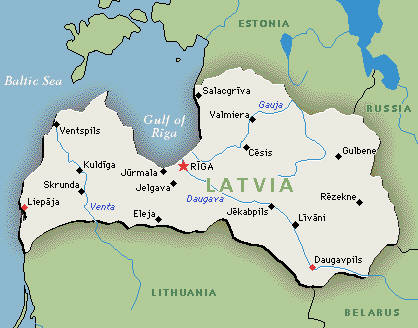Song and dance fest fosters Latvian national identity
 Riga - It was through songs that Latvia won its independence from the Soviet Union. It was through songs the small Baltic nation became independent 90 years ago.
Riga - It was through songs that Latvia won its independence from the Soviet Union. It was through songs the small Baltic nation became independent 90 years ago.
And it is through song that the nation of 2.3 million people is today trying to rediscover its national identity.
A week-long song and dance festival opening Sunday will connect the Baltic nation's past with its present and leads it into the future, say organizers of the week-long event.
"Every nation needs uniting events. The people of Latvia are very diverse. At an everyday level, sometimes it can be difficult to unite all different nationalities that live in this country. But it is possible through the song and dance festival," one of the event's coordinators, Ieva Stare, told Deutsche Presse-Agentur dpa in Riga.
The festival has long been a cornerstone of Latvian nationhood and national identity - a tradition launched 45 years before Latvia was on any world map.
This year it will feature concerts, competitions and crafts involving 35,000 participants, culminating in a concert by a giant choir of 12,000 singers at the central stage in Mezaparks, Riga's leafy residential district.
"We grew up learning folk songs. We've known them, and knowing them comes as easy as breathing. And the moment you all come together and sing songs that are centuries old... you have this enormous flow of energy from singing songs that are close to our hearts," Stare said.
The tradition started in 1873 when Latvians gathered for the first song festival in the Russian Empire.
The festival, which takes place every five years, fostered through more than 20 years of independent Latvia before World War II and, surprisingly, continued during the 50-year Soviet occupation.
At that time until the demise of the Soviet Union, the Latvian song festivals had a politically correct flavour - Latvians sang songs about the Soviet leader Vladimir Lenin and the ruling Communist Party while pondering their own national identity.
"In the soviet Union, the singing was the only way to express a national identity," Stare said.
This is perhaps why Latvians - together with Estonians and Lithuanians - joined together in the chorus of freedom that eventually crushed the Soviet Union in the Singing Revolution and earned the three small nations their statehood in 1991.
Since then, Latvia has continued to change. Latvians saw their country join the European Union and NATO in 2004 and the song festival provides an anchor that reminds them of who they are, Stare said.
Interest this year is enormous - so tickets are hard to come by. To meet the demand, organizers decided to sell tickets for the dress rehearsal.
The tickets for the closing concert are being sold on the Internet at a price 5 times higher than their original, local media reported. (dpa)